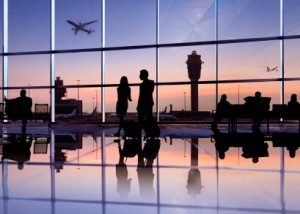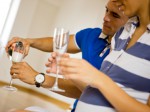-
Choline is an essential nutrient we hear very little about however it is important for good health and some sectors of our community may need more than others. A healthy diet is important to ensure we get enough. Find out more Read more »
-
Good vision is essential for good health and sporting performance, especially if athletes are involved in precision sports that require good hand and eye co-ordination such as tennis, archery, pistol shooting, cricket and golf. Read more »
-
Unlike a broken leg, mental health illness is something we can not see. Even athletes may discount their fatigue or depression as just due to training. Find out how to help. Read more »
-
Malnutrition occurs when a person fails to consume enough energy or protein for their body’s needs. Our needs are constantly changing. Could you be at risk? Find out.. Read more »
-
Are you getting enough sleep? Studies have shown that a chronic lack of sleep can have a major impact on our nutritional well- being, our mental and physical health. Read more »
-
Having a sense of purpose in life can not only help you build a healthier life but a longer one as well. Lea looks at the research and provides some practical tips on finding purpose when the going gets tough. Read more »
-
Research shows a healthy diet and exercise can protect our brain from premature decline, improve our cognitive function and physical performance. Are you getting the nutrition you need? Read more »
-
Everyday we measure things such as the time, money, distance, our cholesterol, petrol etc yet many people fear measuring themselves Read more »
-
Home cooked meals are cheaper and healthier than takeaways. As more women work men are returning to the kitchen for better health and fitness. Read more »
-
Every food item we drop into our supermarket trolley isn’t just affecting us but also the health of those we provide food for. How well do you shop? Read more »
-
Whether you prefer a holiday blobbing out by a pool or more action packed, making good food and exercise choices while away can see you return relaxed and healthier. Read more »
-
While people pride themselves on individual thinking and creativity today, when it comes to eating, drinking and smoking, group mentality can take over. Learn how to keep your goals on track this year. Read more »
-
What habits would you like to break? With all eyes on sugar reduction learn the steps to make this happen to achieve better health now. Read more »
-
Obesity is a global problem we need fresh ideas to help to solve. UK studies of icon labelling suggest this could be a popular initiative Read more »
-
We take every part of our body for granted but have you ever considered how miraculous your hair growth really is? Do you feed it well? Find out. Read more »
-
Lea Stening shares 7 common myths about weight loss and concludes that "you actually need to eat quite a lot of food in order to lose weight". Read more »
-
Working remotely does offer benefits for business but is it good for your health and what needs to happen to make it so? Read more »
-
If you are struggling with a weight or fitness issue and want to make changes this year look at your own “Attitude” first. Read more »
-
An Orthorexics daily obsession with obtaining healthy eating can reduce time available for other interests that formerly made up the fabric of their life. Help is available. Read more »
-
When couples move in together they set in motion changes to their long-term health. While there are many health benefits of living together managing weight may need extra care and attention Read more »
-
Men’s health in New Zealand has deteriorated at a faster rate than women’s over the past 12 years. The results of nutrition and adult health surveys between 1997 and 2012 give us some clues as to why this may be so. Read more »
-
The quality, appearance and growth of our nails often reflect the state of our general health and the adequacy of some essential nutrients in our diet.
Read more »
-
The stress of competition, the sun and wind, sweat, chaffing and high sugar levels are just some of the things that can aggravate the skin conditions of athletes and very active people. Read more »
-
The human body is hugely resilient, constantly strengthening muscles and remodeling bones and joints to take up new loads. However as we age and weight is gained and lost, metabolic changes can take place that alter this remodeling process and can set us on a path to failing mobility and independence. Read more »
-
Swimming against the “peer pressure” tide can be hard if we don’t want to offend our peers. Perhaps we lack self confidence, we don’t want to “rock the boat” or draw unnecessary attention to ourselves or to upset the social plans of others.
Read more »
-
As we head towards Valentines Day and into the romantic month of February, many people are telling me that they feel that their mojo has been buried under the city rubble, along with their homes, business, hopes and dreams. It has been replaced by feelings of depression, stress, anxiety and weight gain. Read more »
-
If improving your fertility is on your mind right now then take a moment to review your current lifestyle.
Read more »
-
Research shows that around 300,000 parents in NZ raising their children alone. Consistent nutrition messages are important to child health when care is shared between parents and other family members. Read more »
-
Prior to the earthquakes on September 4, Boxing Day and now February 22nd did you have any health goals? Do you have any now? Everything changed in an instant when the earthquakes struck. The fear and uncertainty that follows such a traumatic event is normal and everyone reacts to it differently. Everyone has their own … Read more »
-
For those people with chronic illness, the elderly, the debilitated and the sad, eating can be a real chore.
For those who have to stand by and watch a loved ones weight plummet, for what ever reason, it can be difficult to know what to do. Read more »
-
If you want to prolong the life of the man in your life here are some simple tips: Read more »
-
Over the past few months media attention has focused on our drinking habits. While the emphasis has been on teenage binge drinking the message is loud and clear. We all need to change our drinking habits. Read more »
-
Are we having to deal with too much stress these days and what affects is this having on our health and in particular our weight? Find out what you can do about it. Read more »
-
If you are heading away on holiday or going overseas and are keen to control your weight and cholesterol levels then here are a few tips that may help. Read more »
-
Have you looked around lately? On the bus, at the bank, in the supermarket and our schools. We are all getting fatter. Now take a second look at where that fat is located. Read more »
-
�How many times does life get in the way of your plans to lose weight, to eat more healthily and to get fitter? Read more »
-
Before you load up on vitamin supplements, pills and potions this winter check out these easy tips that will help you build a healthier defense system this winter. Read more »
-
When things get tough people often turn to food for comfort. Read more »
-
Impulsive eating is seldom due to hunger and more often a means of reducing stress, anxiety and tension. Read more »
-
Having sufficient energy for every stage of life is the secret to good health, well being and happiness. Read more »
-
If you want to fit a suit or dress for a wedding, end of year ball or the races and need to shed a few kilos then it pays to start early Read more »
-
What we eat and when we eat has a profound affect on the speed at which we make decisions, learn and remember things Read more »
-
It’s easy to judge our fitness from the outside our shape and size. But it's what is going on under the skin that really counts. Work by Jamie Oliver highlights the damage a lifetime of excess food can do to the human body. Read more »
-
If you are struggling to control weight over winter despite your best effort there here are some finer tips that might help. Read more »
-
Is your next New Years resolution to get fit and lose some weight? Then we can help you identify the sabateur's to your best- laid plan and get you back on track. Read more »
-
If planning a party think back about the party you most enjoyed. Follow our tips for being a caring host. Read more »
-
Our immune system is constantly challenged. Is your diet adequate enough to cope? Read more »
-
A nutritional assessment is a useful diagnostic tool to evaluate your present dietary practices. It helps to determine if individual nutritional needs are being met and identifies key nutrient deficiencies Read more »
-
By identifying the associated pitfalls of the ‘jolly season’, you can develop an action plan to help minimise the disruption to your present lifestyle and take the time to enjoy the holiday season ahead. Read more »
-
The battle has once again begun! Winter is the month that brings colds, the flu, fatigue and freezing temperatures back into our lives. It is a annual occurrence that sends many running for cover; right into the comfy arms of our favourite chair or bed snuggled up to avoid that winter chill. We mimic the … Read more »
-
Education research has shown that people learn in different ways. This fact has been taken into account when Lea Stening developed her nutrition education programs. We hope we can help you too. Read more »
-
Nutrition plays a role in collagen, bone and cartilage formation. A nutrition assessment could help you to find better health Read more »
-
Research indicates that oxidative stress (oxygen-related cell damage) may play a significant role in diabetic complications and that dietary adjustments may improve outcomes. Read more »
-
Many people associate osteoporosis with frail little old ladies, however it is not only this group that is affected. Age-related bone loss starts in mid-life. Read more »
-
Many people associate osteoporosis with frail little old ladies, however it is not only this group that is affected. Age-related bone loss starts in mid-life. Read more »
-
Around two thirds of the human brain is made from fat and the types of fats that we eat not only affect things such as our weight, heart and cholesterol levels but also the way our brain processes information. Read more »
-
Alcohol is seemingly the most respectable drug within the New Zealand social scene but could our consumption be contributing to New Zealander's growing problem of obesity? Read more »
-
Take up the challenge! If you want to loose weight and get fitter you have to walk more and sit less right now. It has been estimated that if everyone in the USA were to walk briskly 30mins each day they could reduce chronic illness by up to 40%. If we did the same we … Read more »
-
Ideally, experienced athletes will have started preparing months before their major event with an improvement in their baseline nutrition for body maintenance. Read more »
 Travelling for work sounds a great lifestyle choice. The chance to see different places; to stay in hotels; eat out all the time; swim in hotel pools; meet new people and have an expense account. It sounds so glamorous.
Travelling for work sounds a great lifestyle choice. The chance to see different places; to stay in hotels; eat out all the time; swim in hotel pools; meet new people and have an expense account. It sounds so glamorous.




























































Leave a Reply